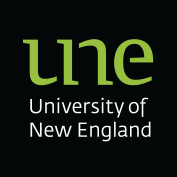 Associate Professor Ehmke spoke on Food Fraud for UNE Business School, co-hosts AARES New England Branch and all guests on 31 May 2017. View the full presentation via the website.
Associate Professor Ehmke spoke on Food Fraud for UNE Business School, co-hosts AARES New England Branch and all guests on 31 May 2017. View the full presentation via the website.
Abstract
Food fraud or the illegal deception for economic gain in food production and marketing has substantial food safety, health and economic implications for food markets. When food fraud occurs in international trade, outside of nation-state jurisdictions, its detection and deterrence are especially difficult. Many recent cases of food fraud demonstrate the difficulty in detecting food fraud occurrence in international supply chains (e.g., dairy in China honey in the EU and US, and olive oil in Italy). While the actual act may only involve a few agents in the supply chain, the effects can be devastating for markets and industries. The objective of this research is to explore economic and statistical methods to detect food fraud in international markets. This information will then inform economic behavioural approaches to deter food fraud within industries and food supply chains. The results may inform food policy, for both agricultural exporting and importing countries.
Mariah Ehmke is Associate Professor of Agricultural and Applied Economics at the University of Wyoming. Mariah holds a Doctorate of Philosophy from Purdue University, Masters from The Ohio State University, and Bachelors of Science from Kansas State University. In 2015-16, she was a visiting Senior Lecturer to the University of Otago (New Zealand). Her research focuses on issues at the nexus of food, health, and environment. She specializes research methodologies using consumer and behavioural economics, experimental economics, and survey methods. Current research projects include household economic models incorporating behavioural economics into child health production, an investigation of beekeeper cost structure in pollination markets, economic experiments to improve pollinator conservation, and food fraud in international markets.




Recent Comments